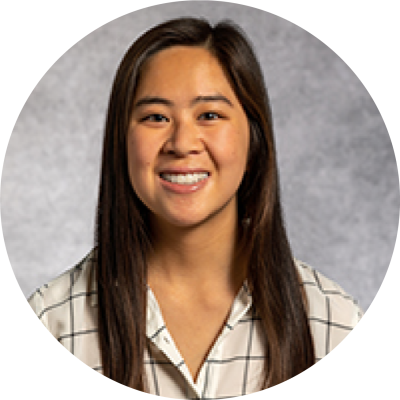
Natalie McMyn
The lab of Drs. Robert and Janet Siliciano focuses on HIV cure. Antiretroviral therapy (ART) prevents new cycles of HIV replication and disease progression, but it is not curative. If ART is stopped, viral rebound will occur due to the persistence of a population of infected cells that can hide from our immune system, known as the latent reservoir. The development of effective ART regimens was approximately 27 years ago, so there are few studies looking at the population of people with HIV on ART for over 20 years. Previously, our lab showed that the latent reservoir decays slowly during the first seven years of ART, enough to guarantee lifetime persistence of HIV, but it was unknown if that decay continued after long-term ART (greater than 20 years), or if ART should continue indefinitely. In this study, we discovered that the latent reservoir does not continue to decay and actually increases slowly. These results emphasize that ART should not be discontinued even after 20 years of treatment, and that the latent reservoir remains a barrier to cure.
Questions & Answers
Why did you choose Johns Hopkins for your work?
During my visit to Johns Hopkins for recruitment weekend, I witnessed how friendly and welcoming the faculty and students were to all of us interviewing. I met with members of the Department of Pharmacology and Molecular Sciences and was warmed by the feeling of community. Everyone knew each other and cared about each other’s work and well-being. The environment was filled with collaboration and the passion for research, which solidified my decision to come to this institution.
What does receiving this award mean to you personally and professionally? Do you have any connection with the particular award you received?
It is truly an honor to receive the Alicia Showalter Reynolds Award. This is my first award recognizing my research efforts. It is also a great recognition of everyone who contributed to the project. My mentors knew Alicia Showalter Reynolds while she was a graduate student and told me how she was both kind and intelligent. This award is special because it keeps Alicia Showalter Reynolds in memory and commemorates women in STEM.
What contributed to your project’s success?
Guidance from my mentors Drs. Robert and Janet Siliciano and the unwavering support from other members of the Siliciano lab were invaluable to this project. In addition to experimental help from both my labmates and collaborators, I had clinical help from doctors and researchers across the country and internationally to recruit 42 people with HIV on long-term ART to this study. With all this collaboration, we responded quickly to a question in the field and demonstrated, within one year, that the latent reservoir remains a barrier to cure even after 20-plus years of treatment.
What thoughts do you have about Young Investigators’ Day itself, as a celebration of the roles students and fellows play in research at Johns Hopkins?
Young Investigators’ Day is a celebration of brilliant and rigorous work from a diverse set of researchers across the school of medicine. It is a wonderful way to recognize the hard work of students and fellows who have dedicated their time to drive innovative research forward at Johns Hopkins. The ceremony provides the opportunity to share these projects with others outside of our field and for the whole Hopkins community to meet the presenters. I always found it exciting to read about the profiles and discoveries of the awardees in the past.
What has been your best/most memorable experience while at Johns Hopkins?
It is hard to pick just one experience, but my most memorable times have always been while spending time with the friends I have made here. I remember taking a weekend trip to New York, cohort potlucks, the Winter Gala, and meeting Dr. Anthony Fauci at the Conference on Retroviruses and Opportunistic Infections with the rest of my lab.
What are your plans over the next year or so? Graduating, looking for faculty positions, etc.?
In the next year, I hope to continue following up this project with research on the antibody response in people with HIV on long-term ART. I hope to continue as a research scientist in immunology after my anticipated graduation in the coming semesters.
Tell me something interesting about yourself that makes you unique. Do you have any special hobbies, interests or life experiences?
Every time I buy an avocado, I root the seed and grow an avocado plant. At one point, I had a farm with over 40 plants growing, ranging from a few weeks to a few years old. That was how my avocado plant business began. I have sold, given away or traded almost all of them now … to make room for my many other plants.